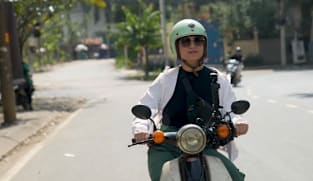Gan Thiam Poh on Immigration (Amendment) Bill
The proposed amendments will strengthen Singapore’s border security and ensure that its immigration system is more efficient and responsive to evolving challenges, said MP Gan Thiam Poh. Speaking in Parliament on Monday (Sep 18), he said digitalisation and automation will help to fortify Singapore’s border security while substantially cutting immigration clearance and processing time. They will also improve the experience of passengers and reduce some of the tedious work of immigration officers. Mr Gan said this will place Singapore at the forefront of international practices for immigration processes. He also raised concerns with the increased reliance on digitalisation and biometrics, saying there will be a higher risk of system vulnerabilities and failures. He wanted to know how the Government will ensure that its system and border controls are reliable and secure. He stressed the need to have backup plans and modes or operations. Mr Gan also wanted to know how personal data will be protected. On the use of technology, he voiced concerns that for some seniors, fingerprints can no longer be read well by scanners due to their dry skin, while those who had cataract surgeries may find it hard to do iris scans. He wanted to know how the Government plans to manage such problems.
The proposed amendments will strengthen Singapore’s border security and ensure that its immigration system is more efficient and responsive to evolving challenges, said MP Gan Thiam Poh. Speaking in Parliament on Monday (Sep 18), he said digitalisation and automation will help to fortify Singapore’s border security while substantially cutting immigration clearance and processing time. They will also improve the experience of passengers and reduce some of the tedious work of immigration officers. Mr Gan said this will place Singapore at the forefront of international practices for immigration processes. He also raised concerns with the increased reliance on digitalisation and biometrics, saying there will be a higher risk of system vulnerabilities and failures. He wanted to know how the Government will ensure that its system and border controls are reliable and secure. He stressed the need to have backup plans and modes or operations. Mr Gan also wanted to know how personal data will be protected. On the use of technology, he voiced concerns that for some seniors, fingerprints can no longer be read well by scanners due to their dry skin, while those who had cataract surgeries may find it hard to do iris scans. He wanted to know how the Government plans to manage such problems.



















